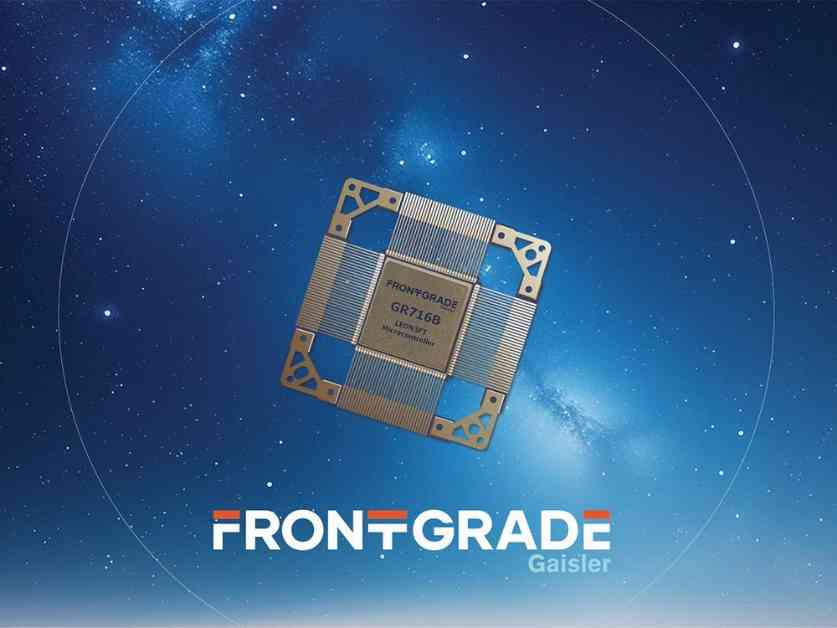Frontgrade Gaisler, a company based in Gothenburg, Sweden, has recently introduced a new space-grade microcontroller called the GR716B. This microcontroller is designed to be radiation-hardened, making it suitable for use in satellite applications where reliability is crucial. The GR716B is an upgrade from its predecessor, the GR716A, and aims to provide energy-efficient and adaptable solutions for the growing demands of space missions.
The GR716B is equipped to handle supervision, monitoring, and control tasks in satellite applications. It offers a wide range of standard interfaces, architectural features, and integrated analog functions, making it versatile and compatible with various space systems. Sandi Habinc, the General Manager at Frontgrade Gaisler, expressed excitement about the capabilities of the GR716B, stating that engineering models are now available for integration into new missions.
One of the key features of the GR716B is its focus on addressing challenges in the space industry, such as the need for low power consumption and efficient resource utilization. Frontgrade Gaisler plans to release the GR716B System-in-Package (SiP) solution, which combines the microcontroller with non-volatile memory to simplify system design.
The development of the GR716B was made possible with support from the European Space Agency’s (ESA) Core Competitiveness program and the Swedish National Space Agency (SNSA). Domenico Mignolo, ESA’s Acting Head of Technology and Products Division, emphasized the importance of supporting innovative technologies like the GR716B to enhance satellite communications and strengthen industrial competitiveness.
Frontgrade Gaisler is recognized for its radiation-hardened microprocessors and IP cores, which are essential for critical applications in the space industry. The company’s processors are known for their reliability, fault tolerance, and radiation tolerance, making them suitable for high-reliability applications like space missions.
Overall, the introduction of the GR716B microcontroller represents a significant advancement in space-grade technology, with a focus on efficiency, reliability, and adaptability. This development underscores the ongoing efforts to push the boundaries of innovation in the space industry and meet the evolving needs of space missions.






















